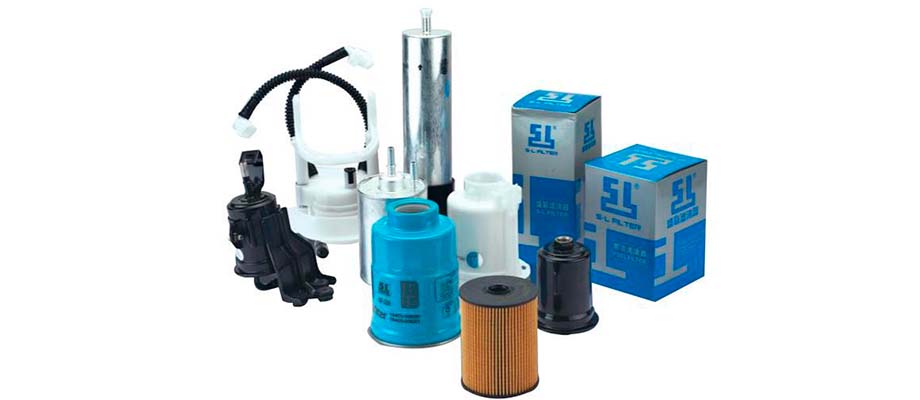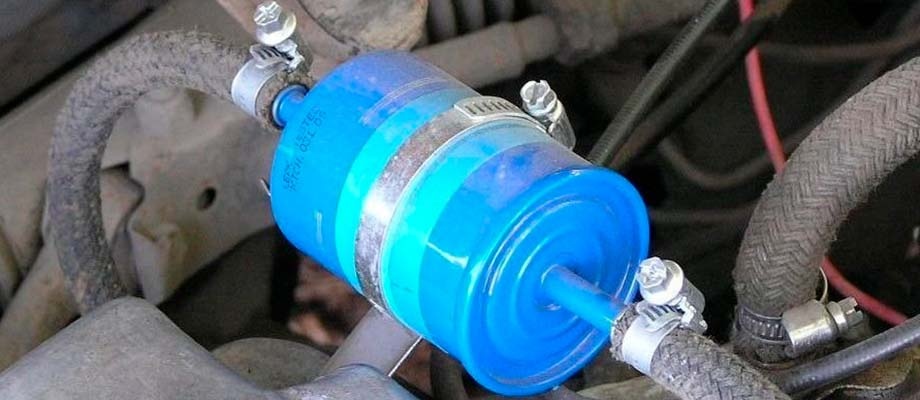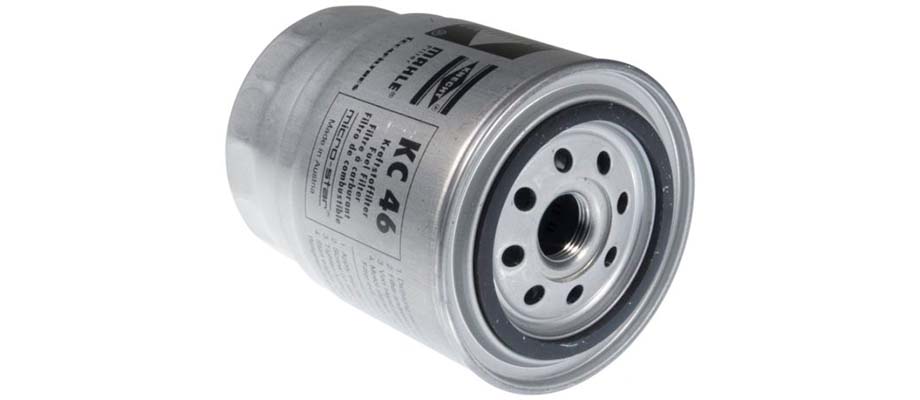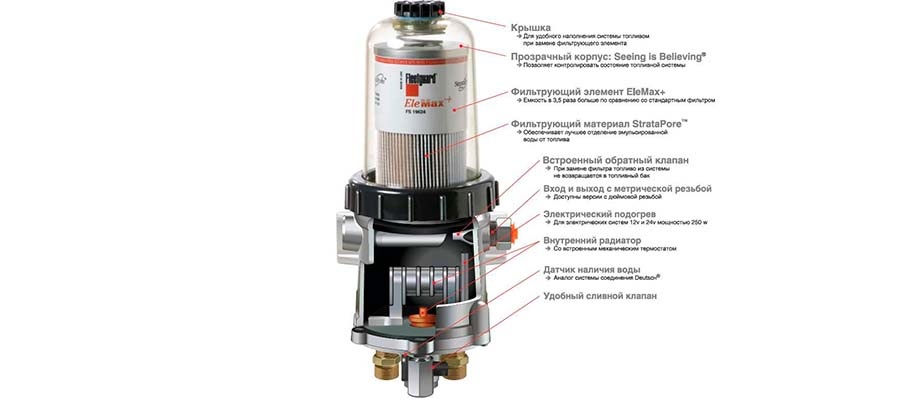
Fuel filters. We choose wisely
The filter elements installed in the fuel system protect the internal combustion engine from foreign particles, which are certainly present in one quantity or another even in high-quality, clean fuel, not to mention those that have to be refueled at Ukrainian gas stations.
Foreign impurities can get into the fuel not only at the production stage, but also during transportation, pumping or storage. It's not just about gasoline and diesel fuel - you need to filter gas too.
Although the fuel filter can hardly be attributed to complex devices, nevertheless, when the need arises for a change, the question of choosing the right device can be confusing.
In order not to make a mistake, when choosing a fuel filter for your car, you need to understand the purpose, characteristics and features of the use of a device of one type or another.
Firstly, the devices differ in the degree of fuel purification - coarse, normal, fine and extra fine. In practice, according to the fineness of filtration, two groups are most often distinguished:
- coarse cleaning - do not let particles 50 microns in size or more pass through;
- fine cleaning - do not pass particles larger than 2 microns.
In this case, one should distinguish between nominal and absolute fineness of filtration. Nominal means that 95% of particles of the specified size are screened out, absolute - not less than 98%. If, for example, an element has a nominal filter rating of 5 microns, then it will retain 95% of particles as small as 5 micrometers (microns).
On passenger cars, the coarse filter is usually part of the fuel module installed in the fuel tank. Usually this is a mesh at the inlet of the fuel pump, which is recommended to be cleaned from time to time.
The fine cleaning device is a separate element that can be located in the engine compartment, under the bottom or in other places, depending on the specific model of the machine. Usually this is what they mean when they talk about the fuel filter.
According to the filtration method, elements with surface and volume adsorption can be distinguished.
In the first case, relatively thin sheets of porous material are used. Particles of impurities, whose dimensions exceed the size of the pores, do not pass through them and settle on the surface of the sheets. Special paper is often used for filtration, but other options are possible - thin felt, synthetic materials.
In devices with volumetric adsorption, the material is also porous, but it is thicker and not only the surface, but also the inner layers are used to screen out dirt. The filter element can be pressed ceramic chips, small sawdust or threads (coil filters).
According to the type of internal combustion engine, fuel filters are divided into 4 groups - for carburetor, injection, diesel internal combustion engines and units operating on gaseous fuels.
Carburetor ICE is the least demanding on the quality of gasoline, and therefore the filter elements for it are simpler. They should retain impurities ranging in size from 15 ... 20 microns.
An injection internal combustion engine running on gasoline requires a higher degree of purification - the filter should not let particles larger than 5 ... 10 microns pass through.
For diesel fuel, the particulate filter fineness is 5 µm. However, disfuelable fuel may also contain water and paraffins. Water impairs the ignition of the combustible mixture in the cylinders and causes corrosion. And paraffin crystallizes at low temperatures and can clog the filter. Therefore, in the filter for diesel internal combustion engines, means of combating these impurities must be provided.
On vehicles equipped with gas-balloon equipment (LPG), the filtration system is significantly different. First, propane-butane, which is in a liquid state in a cylinder, is cleaned in two stages. At the first stage, the fuel undergoes coarse filtration using a mesh element. In the second stage, a more thorough cleaning takes place in the gearbox using a filter, which, due to working conditions, must withstand significant temperature fluctuations. Further, the fuel, already in a gaseous state, passes through a fine filter, which must retain moisture and oily substances.
According to the location, the filter can be submersible, for example, a coarse mesh in the fuel module, which is immersed in the fuel tank, and the main one. Almost all fine filters are main filters and are usually located at the inlet to the fuel line.
It happens that fine filtration of fuel is carried out directly in the fuel pump. A similar option is found, for example, in some Japanese cars. In such cases, changing the filter yourself can be a big problem, it may even be necessary to change the pump assembly.
Fuel filters may have a non-separable design, or they can be produced in a collapsible housing with a replaceable cartridge. There is no fundamental difference in the internal structure between them.
The simplest device has filters for carburetor internal combustion engines. Since the pressure in the fuel system is relatively low, the requirements for the strength of the housing are also quite modest - it is often made of transparent plastic, through which the degree of contamination of the filter is visible.
For injection ICEs, fuel is supplied to the nozzles under significant pressure, which means that the fuel filter housing must be stronger - it is usually made of stainless steel.
The body is usually cylindrical, although there are also rectangular boxes. A conventional direct-flow filter has two fittings for connecting nozzles - inlet and outlet.

In some cases, there may be a third fitting, which is used to divert excess fuel back to the tank if the pressure exceeds the norm.
Connection of fuel lines is possible both on one side and on opposite ends of the cylinder. When connecting tubes, the inlet and outlet must not be interchanged. The correct direction of fuel flow is usually indicated by an arrow on the body.
There are also so-called spin-on filters, the body of which has a thread on one of the ends. For inclusion in the highway, they are simply screwed into the appropriate seat. fuel enters through holes located around the circumference of the cylinder, and the exit is in the center.

In addition, there is such a type of device as a filter cartridge. It is a metal cylinder, inside which a replaceable cartridge is inserted.
The leaf filter element is folded like an accordion or wound in a spiral. A ceramic or wood filter element with volumetric cleaning is a compressed cylindrical briquette.
A device for cleaning diesel fuel has a more complex design. To prevent crystallization of water and paraffins at low temperatures, such filters often have a heating element. This solution also makes it easier to start the internal combustion engine in winter, when frozen diesel fuel can resemble a thick gel.
To remove condensate, the filter is equipped with a separator. It separates the moisture from the fuel and sends it to the sump, which has a drain plug or faucet.

Many cars have a light on the dashboard that signals the need to drain the accumulated water. The excess moisture signal is generated by a water sensor, which is installed in the filter.
You can, of course, do without cleaning the fuel. Only you won't get far. Very soon, the injector nozzles will become clogged with dirt, which will make it difficult to inject fuel into the cylinders. A lean mixture will enter the combustion chambers, and this will immediately affect the operation of the internal combustion engine. The internal combustion engine will get worse and worse, it will stall as soon as you try to move off. Idling will be unstable, in motion the internal combustion engine will lose power, will twitch, troit, choke, overtaking and driving on the rise will become a problem.
Claps and sneezing will be observed not only in injection, but also in carburetor units, in which impurities in the fuel will clog the fuel jets.
Dirt will freely enter the combustion chambers, settle on their walls and further worsen the combustion process of the fuel. At some point, the ratio of fuel and air in the mixture will reach a critical value and ignition will simply stop.
It is possible that this will not even come to this, because another event will occur earlier - the fuel pump, forced to pump fuel through a clogged system, will fail due to constant overload.
The result will be the replacement of the pump, the repair of the power unit, the cleaning or replacement of nozzles, fuel lines and other unpleasant and costly things.
Saves from these troubles a small and not very expensive part - the fuel filter. However, it is important not only its presence, but also timely replacement. A clogged filter in the same way will increase the load on the fuel pump and lean the mixture entering the cylinders. And the internal combustion engine will respond to this with a drop in power and unstable operation.
If the fuel filter used in your car is of a non-separable design, do not waste time trying to clean it, as some craftsmen advise. You won't get an acceptable result.
When choosing a filter to replace an element that has exhausted its resource, you must first of all be guided by the instructions of the manufacturer of the power unit.
The purchased filter must match the type of internal combustion engine of your car, be structurally compatible, provide the same throughput and degree of purification (filtration fineness) as the original element. At the same time, it does not matter what exactly is used as a filter material - cellulose, pressed sawdust, polyester or something else.
The most reliable option when buying is the original part, but its price may be unreasonably high. A reasonable alternative would be to purchase a third-party filter with the same parameters as the original.
If you are not sure that you understand well which element you need, you can entrust the choice to the seller, naming him the model and year of manufacture of the car. It is only better to buy either from a reliable seller on the Internet, for example, in a store, or in a trusted offline store.
Do not chase cheapness too much and make a purchase in a dubious place - you can easily run into a fake, there are a lot of them on the automotive market. In the cost of a quality filter, more than half of the costs are for paper. This is used by unscrupulous manufacturers, using cheap low-quality filter material in their products or making the styling too loose. As a result, there is almost no sense from such a filter, and the harm can be significant. If the filter paper is of inadequate quality, it will not filter out impurities well, its own fibers can get into the fuel line and clog injectors, it can break under pressure and let most of the debris through. A case made of cheap plastic may not withstand pressure and temperature changes and burst.
If you still buy on the market, carefully inspect the part, make sure that the quality of workmanship is beyond doubt, pay attention to logos, markings, packaging.
If you have a diesel engine, you need to select the filter especially carefully. Insufficient capacity will reduce the ability to pump fuel, which means that in frosty weather you risk not starting. A small water sump capacity will increase the likelihood of moisture entering the internal combustion engine with all the ensuing consequences. A low degree of cleaning will lead to clogged nozzles.
Gasoline ICEs with direct injection are also very sensitive to fuel cleanliness. For this type of internal combustion engine, you need to choose only a high-quality fuel filter.
If we talk about manufacturers, then the German filters HENGST, MANN and KNECHT / MAHLE are of the highest quality. True, and they are quite expensive. Approximately one and a half times cheaper than the products of the French company PURFLUX and the American DELPHI, while their quality is almost as good as the Germans mentioned above. Manufacturers such as CHAMPION (USA) and BOSCH (Germany) have long and well established themselves. They have relatively low prices, but according to some estimates, the quality of BOSCH products can vary significantly depending on the country in which they are produced.
In the middle price segment, filters of the Polish brands FILTRON and DENCKERMANN, Ukrainian ALPHA FILTER, American WIX FILTERS, Japanese KUJIWA, Italian CLEAN FILTERS and UFI have good reviews.
As for packaging companies - TOPRAN, STARLINE, SCT, KAGER and others - buying their inexpensive products can turn out to be a lottery.